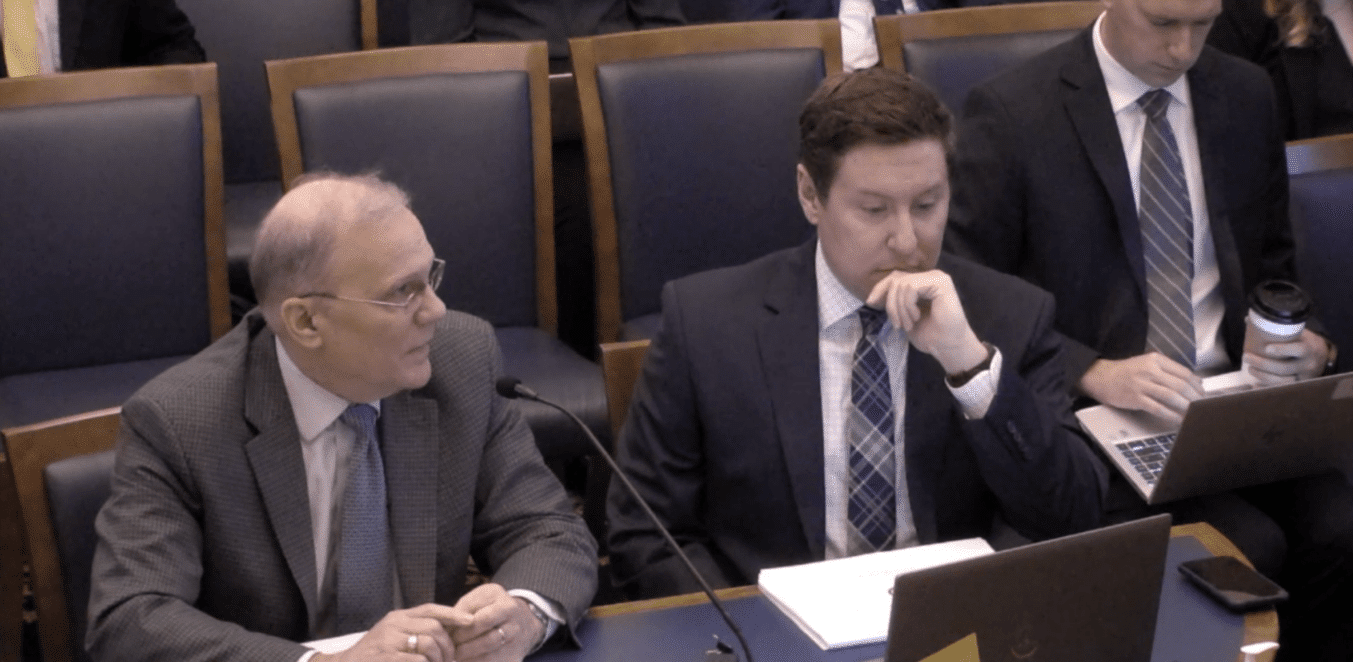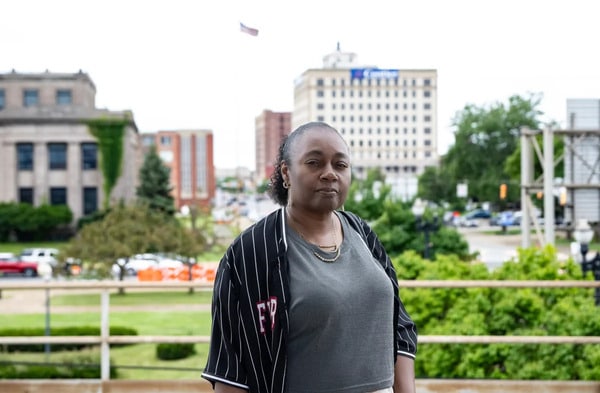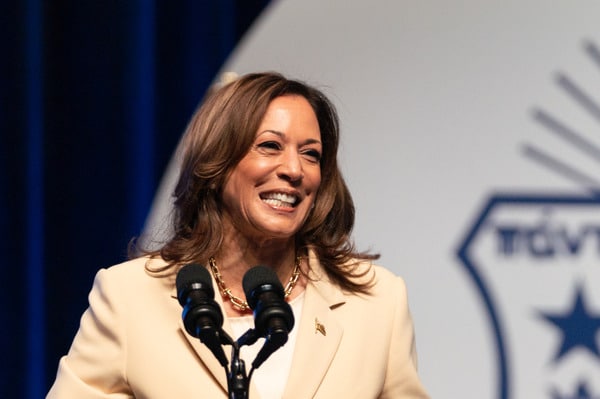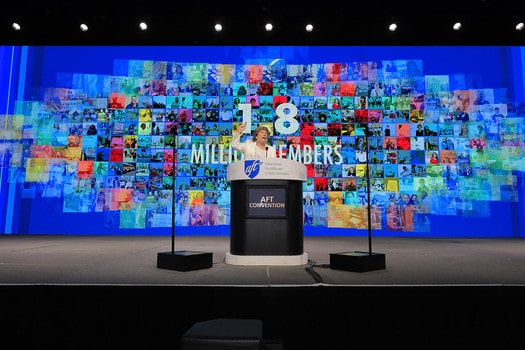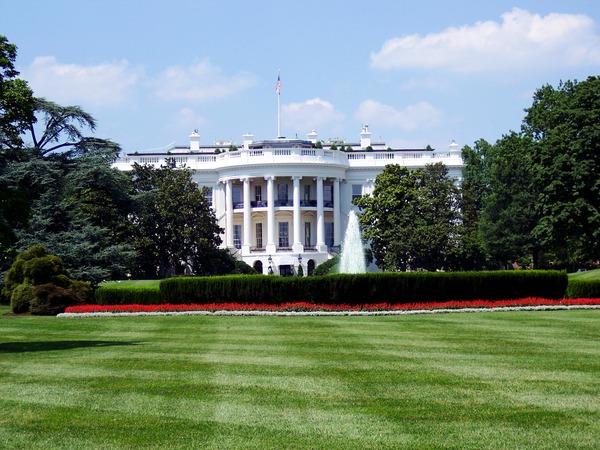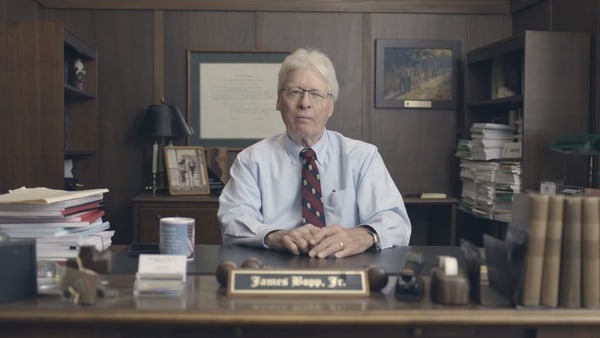The House Ways and Means Committee met Thursday to hear a financial breakdown of Gov. Eric Holcomb’s official proposed budget. The presentation was led by Cris Johnston (above, left), director of the Indiana Office of Management and Budget, and Zachary Jackson (above, right), the state’s budget agency director.
Before getting into the budget specifics, Johnston gave the committee an overview of how the state has been doing financially. According to Johnston, 2022 was “really an extraordinary year for collections.” Indiana saw an increase of $1.7 billion in tax revenue, 9-10% higher than the previous year.
The three biggest parts of Holcomb’s proposed budget go toward education, health and human services, and public safety. These categories make up around 90% of the overall budget. It calls for an increase in spending of about $2.5 billion for tuition support, textbook reimbursement and Medicaid.
Jackson said the budget agency normally sends out instructions around July 1, but to get a head start on budget submissions from agencies, it started almost a quarter earlier.
The base calculation in the governor’s budget, or what amount was guaranteed, was the starting point in building the budget request. The budget agency then went to every other state agency to talk about their progress and their submissions and to offer overall feedback.
Capital projects
As for capital projects, all of the projects included were initially funded in the 2021 budget, but they didn’t make any progress as the funds were “moved around” to make up for other areas. In this year’s proposed budget, they are attempting to fund these projects again.
The new proposal amounts, with inflation, are:
$97 million for the State Archives building.
$100 million for the Potato Creek State Park Lodge.
$253 million for the co-location of the deaf and blind/visually impaired school.
$800 million for the Westville Correctional Facility.
Jackson said that when his agency planned to work on the State Archives building, “we thought originally we might be able to do that for $40 million.” Other estimates significantly changed since the last budget year as well. Instead of $100 million for the Potato Creek State Park Lodge, original estimates were in the $60 million range.
Economic and community development
The proposed budget includes increasing tourism funding by $10 million annually while also giving the sports bid fund $5 million annually. This fund helps to bring sports events to Indiana.
The budget calls for $50 million more for Next Level Trails as well as $25 million for land conservation.
It also seeks to double food bank funding to $2 million annually.
Education
After many conversations regarding Holcomb’s plans to eliminate textbook fees, some representatives brought up issues with not funding textbook fees for parochial schools. Rep. Ben Smaltz, R-Auburn, felt it wasn’t fair to assume parents of children in parochial schools have higher incomes.
“I just want to be a voice for all parents and say that it’s not an indicator of wealth if somebody goes to a parochial school,” Smaltz said. “All parents have a place in this discussion.”
Along with eliminating textbook fees, the budget asks to increase k-12 tuition support by a total of 8%. It also seeks to increase English language learner funding to $50 million annually and increase school safety grant funding by 30%.
Higher education funding is set to total $184 million over the biennium, along with the Hoosier state financially supporting Martin University, Indiana’s only predominantly Black institution.
For adult education, the budget proposes to expand Excel Centers across the state with an increase of $3 million in fiscal year 2024 and $11 million in fiscal year 2025.
Helping adults earn their diplomas online, the budget would increase funding for the Graduation Alliance to $1.5 million annually.
Health and wellness
Following the Governor’s Public Health Commission’s recommendations, the budget is set to fund $120 million in fiscal year 2024 and $227 million in fiscal year 2025. Medicaid assistance will also increase by $706.1 million in fiscal year 2024 and $968 million in fiscal year 2025.
The health of veterans is also a priority in the budget, with $2 million annually going toward relocation assistance and $1 million annually going toward suicide prevention.
Public safety
In addition to Holcomb’s recommendation to increase Indiana State Police salaries to minimum $70,000 a year, Excise and the Indiana Department of Natural Resources would also see its employees’ salaries raised.
The budget aims to follow the Supreme Court’s request to upgrade technology and expand problem-solving courts, as mentioned during the State of the Judiciary on Jan. 11.
Reactions
The unanimous reaction across party lines was that the presentation included many numbers to digest, and many lawmakers asked specific questions on points of confusion or clarification.
Rep. Sheila Klinker, D-Lafayette, took a moment to bring up the need for health-care workers: “I can tell you in our nursing home situations in our area, they’re begging for people and hiring people that really are just studying to be CNAs or studying to be nurse assistants or nurse practitioners. They’re desperate for help.”
Rep. Cherrish Pryor, D-Indianapolis, brought up the increased need for mass transportation and asked if conversations surrounding increasing funding for transportation were had. Pryor stated that as far as she knew, the funding for transit had remained flat for years.
“I think we do need to look at increasing that [transportation funding] so that all the communities that get a piece of the pie can get a little bit more money off of that,” Pryor said.
Rep. Jack Jordan, R-Bremen, brought up the idea of looking into some tax policy changes before simply taking the state’s revenues and allocating them.
“I would hate to get through this process and not at least have a discussion around tax policy.”
The House Ways and Means Committee will meet again at 9:30 a.m. Jan. 17 for more budget hearings.

